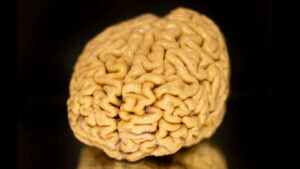
On November 6, 2023, five professors from various disciplines will engage in a thought-provoking discussion during the annual Apocalypse Debate, organized by Logos, the undergraduate philosophy journal and club. The event, scheduled for 17:00 in Room G01 of Uris Hall, challenges the academics to determine which subject should be preserved in the face of a hypothetical cataclysmic event that threatens humanity.
The debate poses a dramatic scenario: a near-extinction level event where Earth’s population declines by 99.9%, resulting in the loss of all knowledge accumulated over the past 10,000 years. In this dire situation, a group of visionary radicals creates an apocalypse-proof box, designed to hold the knowledge of only one subject. The professors must argue for their discipline’s critical importance and justify why it deserves a place in this exclusive repository of human knowledge.
Engaging Perspectives on Knowledge Preservation
Participants in this year’s debate represent a range of fields, each offering unique insights into the essential contributions of their disciplines. From the sciences to the humanities, the professors will explore the implications of their choices, not only for the survival of knowledge but also for the future of civilization. The event promises to stimulate deep reflection on what constitutes vital knowledge in a post-apocalyptic world.
Organizers of the debate highlight its significance as an opportunity for intellectual engagement, inviting the campus community to contemplate the value of various academic disciplines. “This debate is not just about survival; it’s about understanding the essence of knowledge itself,” stated a representative from Logos. The discourse will encourage participants and audience members alike to think critically about the role of education and the preservation of knowledge in shaping society.
A Unique Event for the Academic Community
The Apocalypse Debate has become a hallmark event at the College of Arts & Sciences, attracting attention from students, faculty, and the broader community. It encourages a blend of serious academic discourse and creative thinking, allowing professors to advocate passionately for their respective fields. The format of the event is designed to be engaging, with each participant presenting their case in a compelling manner.
As the date approaches, interest in the debate continues to grow. Attendees can expect not only a lively discussion but also an opportunity to reflect on the broader implications of knowledge preservation in a rapidly changing world. Given the stakes of the debate, it serves as a reminder of the fragility of human achievement and the importance of safeguarding our intellectual heritage.
For further details about the debate and to learn more about the participating professors, visit the College of Arts & Sciences website. The event is free and open to the public, making it an accessible platform for engaging with critical academic discussions.






